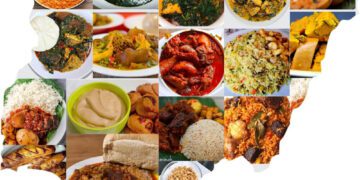Two superfoods prevent dementia, cancer and early death say researchers
Researchers say two food types are great for maintaining a healthy lifestyle. Note that the items which can be bought in any supermarket do not have to be eaten in big quantities. These foods are known to be fortified shields against dementia, and cancer and reduce the risk of dying early.
According to The Times, leafy greens such as spinach, kale, cabbage, and lettuce are a class of superfoods considered a brain food staple because of the essential nutrients, including vitamin K, lutein and folate, and a range of beneficial plant flavonoids they contain. They are also a source of nitrates, compounds that are converted by the body to nitrite, which relaxes and widens blood vessels to boost blood flow to the heart, brain, and muscles.
Eating a daily serving of leafy greens was shown by nutritionists at Rush University in Chicago to slow age-related cognitive decline, with people who ate two or more servings typically displaying the memory and recall skills of someone 11 years younger. In 2023 a large study supported by the World Cancer Research Fund involving more than 70,000 people showed that a daily dose of leafy greens could help to cut the risk of bowel cancer by up to 7 per cent. Dr Linia Patel, a registered dietician, says that “green leafy veg can have a profound effect on general health and on heart health”. Researchers at Edith Cowan University’s Institute for Nutrition Research in Australia showed that a daily serving of leafy greens helped to “significantly reduce the risk of blood pressure and cardiovascular disease” in a study of nearly 3,000 people.
Another ‘superfood’ which is suggested is a handful of nuts – which could lower the risk of respiratory disease and cancer. Just 20g (or a palm-sized handful) of nuts a day can bring a slew of health benefits. A team from Imperial College London and the Norwegian University of Science and Technology found that nut-eaters could cut their risk of heart disease by nearly 30 per cent, cancer by 15 per cent and premature death by 22 per cent.
Published in the journal BMC Medicine, the review of 29 studies from around the world involving 819,000 people found that eating nuts daily cut the risk of dying from respiratory disease in half and from diabetes by almost 40 per cent. “Nuts are also rich in cholesterol-lowering fats and fibre as well as minerals that are linked to better heart health,” Lambert says. “Their nutrient profile varies, so have a good mix of raw and unsalted varieties. ”It also has other benefits – a study of 47,000 men found that those who consumed a third of a cup of nuts five times a week had a 34 per cent lower risk of mortality from prostate cancer.














































































